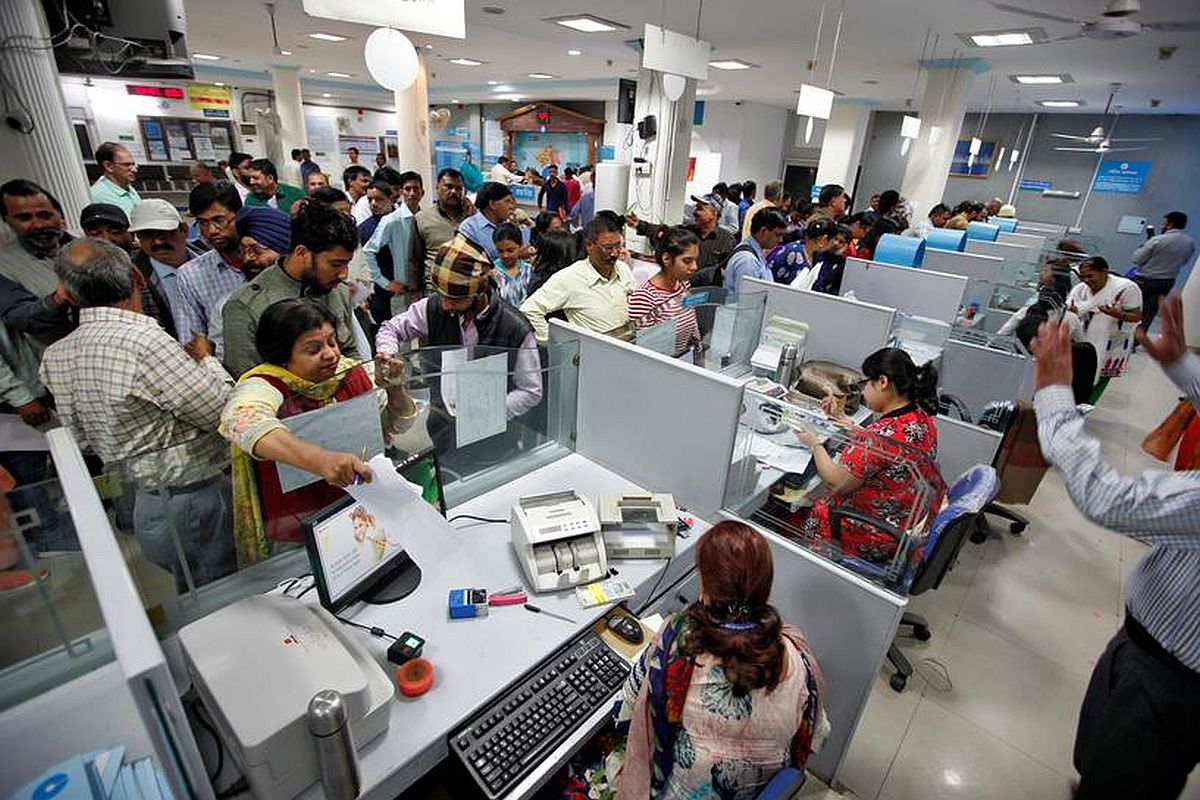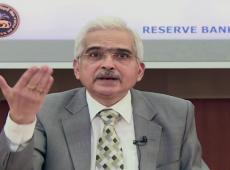RBI Raises UPI Payment Limit for Hospitals && Education
By Rediff Money Desk, MUMBAI Dec 08, 2023 11:39
The Reserve Bank of India (RBI) has increased the UPI payment limit for hospitals and educational institutions to Rs 5 lakh from Rs 1 lakh. The central bank has also hiked the cap for e-mandates for recurring payments to Rs 1 lakh.

Mumbai, Dec 8 (PTI) In a major decision, the RBI on Friday announced to raise the UPI payment limit to hospitals and educational institutions to Rs 5 lakh from Rs 1 lakh presently and hiked the cap for e-mandates for recurring payments to Rs 1 lakh.
Unveiling the December bi-monthly monetary policy, Reserve Bank Governor Shaktikanta Das said the limit for various categories of Unified Payments Interface (UPI) transactions has been reviewed from time to time.
"It is now proposed to enhance the UPI transaction limit for payment to hospitals and educational institutions from Rs 1 lakh to Rs 5 lakh per transaction," he said.
The enhanced limit will help consumers make UPI payments of higher amounts for education and healthcare purposes.
He further said that e-mandates for making payments of a recurring nature have become popular among customers.
Under the e-mandate framework, an additional factor of authentication (AFA) is required for recurring transactions exceeding Rs 15,000 currently.
"It is now proposed to enhance this limit to Rs 1 lakh per transaction for recurring payments of mutual fund subscriptions, insurance premium subscriptions and credit card repayments," the governor said.
The measure, he said, will further accelerate the usage of e-mandates.
In another development, the RBI also announced to set up a "Fintech Repository" for a better understanding of developments in the fintech ecosystem and support the sector.
"This will be operationalised by the Reserve Bank Innovation Hub in April 2024 or earlier. FinTechs would be encouraged to provide relevant information voluntarily to this Repository," Das said.
Financial entities like banks and NBFCs in India are increasingly partnering with fintechs.
Das also said that the central bank is working on the establishment of a cloud facility for the financial sector in India.
Banks and financial entities are maintaining an ever-increasing volume of data.
Many of them are utilising cloud facilities for this purpose, he added.
"The Reserve Bank is working on establishing a cloud facility for the financial sector in India for this purpose," he said, adding such a facility would enhance data security, integrity, and privacy.
It will also facilitate better scalability and business continuity.
Das said the cloud facility is intended to be rolled out in a calibrated fashion over the medium term.
Unveiling the December bi-monthly monetary policy, Reserve Bank Governor Shaktikanta Das said the limit for various categories of Unified Payments Interface (UPI) transactions has been reviewed from time to time.
"It is now proposed to enhance the UPI transaction limit for payment to hospitals and educational institutions from Rs 1 lakh to Rs 5 lakh per transaction," he said.
The enhanced limit will help consumers make UPI payments of higher amounts for education and healthcare purposes.
He further said that e-mandates for making payments of a recurring nature have become popular among customers.
Under the e-mandate framework, an additional factor of authentication (AFA) is required for recurring transactions exceeding Rs 15,000 currently.
"It is now proposed to enhance this limit to Rs 1 lakh per transaction for recurring payments of mutual fund subscriptions, insurance premium subscriptions and credit card repayments," the governor said.
The measure, he said, will further accelerate the usage of e-mandates.
In another development, the RBI also announced to set up a "Fintech Repository" for a better understanding of developments in the fintech ecosystem and support the sector.
"This will be operationalised by the Reserve Bank Innovation Hub in April 2024 or earlier. FinTechs would be encouraged to provide relevant information voluntarily to this Repository," Das said.
Financial entities like banks and NBFCs in India are increasingly partnering with fintechs.
Das also said that the central bank is working on the establishment of a cloud facility for the financial sector in India.
Banks and financial entities are maintaining an ever-increasing volume of data.
Many of them are utilising cloud facilities for this purpose, he added.
"The Reserve Bank is working on establishing a cloud facility for the financial sector in India for this purpose," he said, adding such a facility would enhance data security, integrity, and privacy.
It will also facilitate better scalability and business continuity.
Das said the cloud facility is intended to be rolled out in a calibrated fashion over the medium term.
Read More On:
DISCLAIMER - This article is from a syndicated feed. The original source is responsible for accuracy, views & content ownership. Views expressed may not reflect those of rediff.com India Limited.
You May Like To Read
TODAY'S MOST TRADED COMPANIES
- Company Name
- Price
- Volume
- GTL Infrastructure
- 2.93 ( -4.87)
- 226206286
- IFL Enterprises
- 1.30 (+ 4.84)
- 81461564
- Vodafone Idea L
- 16.79 (+ 0.66)
- 67447398
- NCL Research
- 0.95 ( -4.04)
- 31996628
- Franklin Industries
- 3.73 (+ 3.32)
- 21511209
MORE NEWS

Navi Mumbai Airport ILS Signal Testing Begins
The Airports Authority of India (AAI) has begun ILS signal testing at the...

Air India VRS for Non-Flying Staff Ahead of...
Air India has announced a voluntary retirement scheme (VRS) and voluntary separation...
Fisher Groups Oppose WTO Fisheries Subsidy Talks
Small-scale fisher groups from India, Indonesia, and Bangladesh demand WTO keep...












 © 2024 Rediff.com India Limited. All rights reserved.
© 2024 Rediff.com India Limited. All rights reserved.